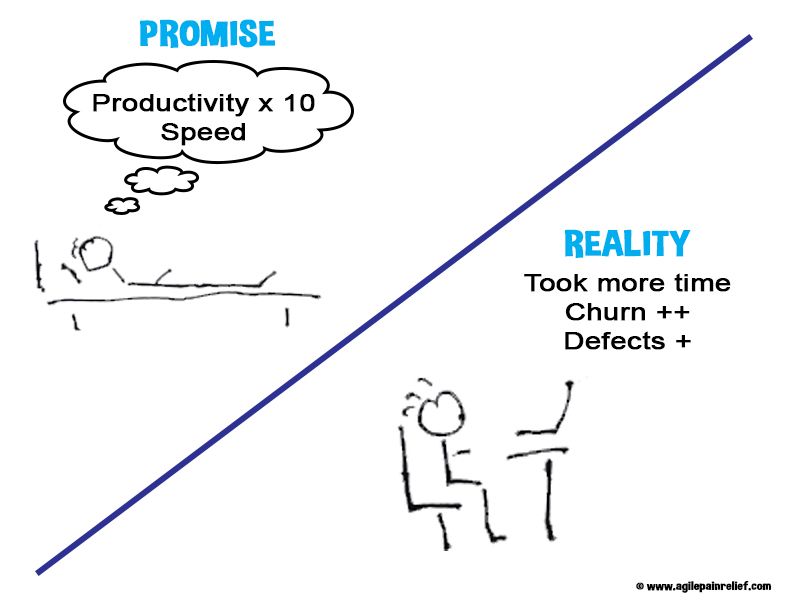Morale
Team health checks have been popular in the Agile Community for years. Getting people to pay attention to the joy in their teams is a boon. The challenge is the primary measure that people like to use is Happiness. Happiness is important, but it’s too broad a measure for teams at work. When measuring happiness, we’re measuring many things outside of work, for example: the state of someone’s marriage, did they get enough sleep last night, etc.
We need something that more accurately measures the health of a team and their willingness to work together. Morale is a good choice because it is task and team oriented and is well-studied in the scientific literature. It is less subjective and less affected by mood.
There’s no formal approach to measuring morale, but a common method is to ask teams to rate some qualitative questions, which helps generate discussion. A short, practical version is:
In my team, I feel fit and strong; I am proud of the work that I do for my team; I am enthusiastic about the work that I do for my team; I find the work that I do for my team of meaning and purpose.
Read the article “Agile Teams: Don’t use happiness metrics, measure Team Morale” by Christiaan Verwijs for more depth.
Caveat: if you attempt to reduce the four questions down to one or two, it’s hardly better than a happiness questionnaire.
Resource Links
- Agile Teams: Don’t use happiness metrics, measure Team Morale This blog post has a surprising degree of rigour and is the original source of Morale in the Agile Community. - How I Measure Scrum Team Morale
- similar ideas, the questions may not have the proven rigour of the others - Agile Team Health & Morale Checks offers every team health check you could imagine. Some good, some I wouldn’t recommend.
